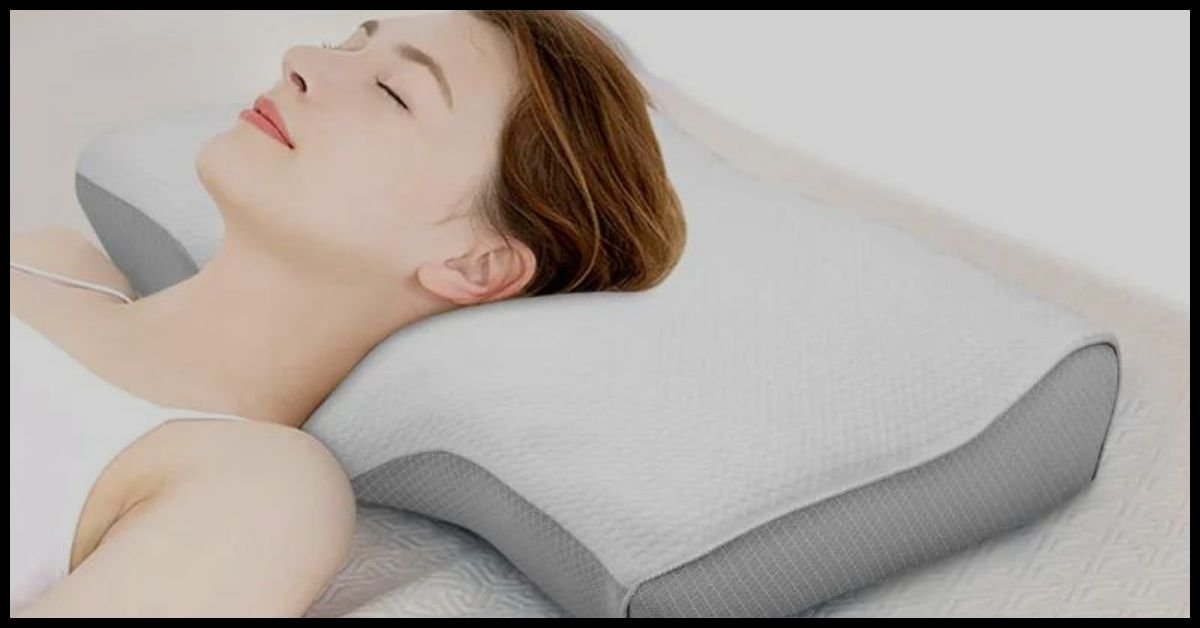Introduction to Can Dense Memory Foam Pillows Cause Tinnitus
Imagine lying in bed, surrounded by silence, when suddenly a persistent ringing or buzzing invades your peaceful thoughts. This is the reality for many people suffering from tinnitus, a condition that can be both frustrating and isolating. Though its exact causes are often shrouded in mystery, various factors—from exposure to loud noises to certain medications—can contribute to this auditory phenomenon.
As we seek comfort during our nightly rest, more individuals are turning to memory foam pillows for their cloud-like support. But could these plush cushions actually trigger or exacerbate tinnitus? In this blog post, we’ll explore the intriguing relationship between dense memory foam pillows and the sounds that some of us just can’t seem to shake off. Let’s explore what science says and discover how we might sleep soundly again without those unwelcome distractions.
The Connection Between Memory Foam Pillows and Tinnitus
Memory foam pillows have gained popularity for their comfort and support. Yet, some users report experiencing tinnitus—a persistent ringing or buzzing in the ears—after making the switch.
The connection between these pillows and tinnitus needs to be better understood. It’s possible that the materials used in dense memory foam could trigger sensitivities in specific individuals. The chemical compounds found in some low-quality foams may release volatile organic compounds (VOCs) that can cause discomfort or exacerbate existing hearing conditions.
Additionally, how we sleep plays a crucial role. If a pillow alters neck alignment or increases pressure on nerves, it might indirectly contribute to symptoms like tinnitus.
Listening to your body is vital when trying out new products. If you notice changes after using a memory foam pillow, noting those experiences can guide future choices related to your sleep environment.
Studies and Research on the Link Between Memory Foam Pillows and Tinnitus
Research on the relationship between memory foam pillows and tinnitus is still limited. Few studies specifically target this connection, leaving many questions unanswered.
Some experts suggest that the materials used in these pillows may contribute to discomfort during sleep. This discomfort could trigger or exacerbate tinnitus symptoms for some individuals.
Additionally, noise sensitivity associated with tinnitus might be heightened by close contact with a pillow. If the pillow retains heat or creates pressure points, it can lead to restless nights and an uptick in ear-ringing sensations.
While anecdotal reports abound, more rigorous scientific studies are needed to draw definitive conclusions about memory foam pillows as a potential cause of tinnitus. Until then, staying informed and monitoring personal experiences remains vital for those affected by this condition.
Other Possible Triggers for Tinnitus
Tinnitus can be a perplexing condition, often triggered by various factors beyond just pillow choice. Noise exposure is one significant culprit. Prolonged exposure to loud sounds—from concerts to heavy machinery—can lead to ear damage and subsequently induce tinnitus.
Certain medications are also known for their side effects related to hearing health. Common prescriptions, particularly those used for cancer or high blood pressure, may increase the likelihood of developing this annoying ringing sensation.
Stress plays an undeniable role, too. Anxiety and tension can amplify existing symptoms or even spark new episodes of tinnitus. Lifestyle choices such as excessive alcohol consumption and smoking might worsen the situation as well.
Underlying health issues shouldn’t be overlooked, either; conditions like ear infections or sinus problems could significantly contribute to tinnitus onset. Understanding these triggers is crucial for the effective management of this complex auditory puzzle.
Tips for Choosing the Right Pillow to Avoid Tinnitus
Choosing the right pillow can significantly impact your sleep quality and overall comfort. A good start is to select a pillow that offers proper neck support. Look for options with adjustable fill, allowing you to customize height and firmness according to your needs.
Consider materials that promote breathability. Natural fibers like cotton or bamboo can help regulate temperature, reducing discomfort during the night. Avoid overly dense memory foam if you’re concerned about potential pressure points.
It’s also wise to pay attention to allergies. Hypoallergenic pillows made from synthetic materials may help reduce irritants that could contribute to tinnitus symptoms.
Don’t forget about testing out different pillows before committing. Spend a few nights evaluating how each one feels and impacts your sleep quality, focusing on any changes in your tinnitus symptoms as well.
Lifestyle Changes to Manage Tinnitus Symptoms
Managing tinnitus can often require more than just medical intervention. Lifestyle changes play a crucial role in alleviating symptoms.
Start by examining your diet. Incorporating foods rich in antioxidants, such as fruits and vegetables, may help reduce inflammation. Staying hydrated is equally essential; dehydration can worsen ringing in the ears.
Regular exercise also makes a significant difference. Physical activity boosts circulation, which can enhance ear health and potentially ease discomfort.
Mindfulness practices like yoga or meditation are valuable, too. These techniques help manage stress levels that might exacerbate tinnitus symptoms.
Limiting exposure to loud environments is essential. If you must be around noisy settings, consider using ear protection to shield your hearing from further damage.
Establishing a consistent sleep routine helps improve overall well-being and could mitigate the intensity of tinnitus sounds at night.
Conclusion
Understanding the relationship between dense memory foam pillows and tinnitus is essential for those who experience this distressing condition. While some individuals may report a connection, research directly linking the two remains limited.
Tinnitus can stem from various causes, ranging from exposure to loud noises to underlying health issues. It’s important to identify personal triggers and address them appropriately. When it comes to choosing a pillow, selecting one that provides adequate neck support and maintains proper spine alignment is crucial.
Lifestyle changes can also play a significant role in managing tinnitus symptoms. Reducing stress, avoiding caffeine, and practicing relaxation techniques may help alleviate discomfort.
Navigating sleep comfort while being mindful of potential tinnitus triggers allows for better rest and overall well-being. Prioritizing your sleep environment can lead to improved quality of life amidst the challenges posed by tinnitus.





